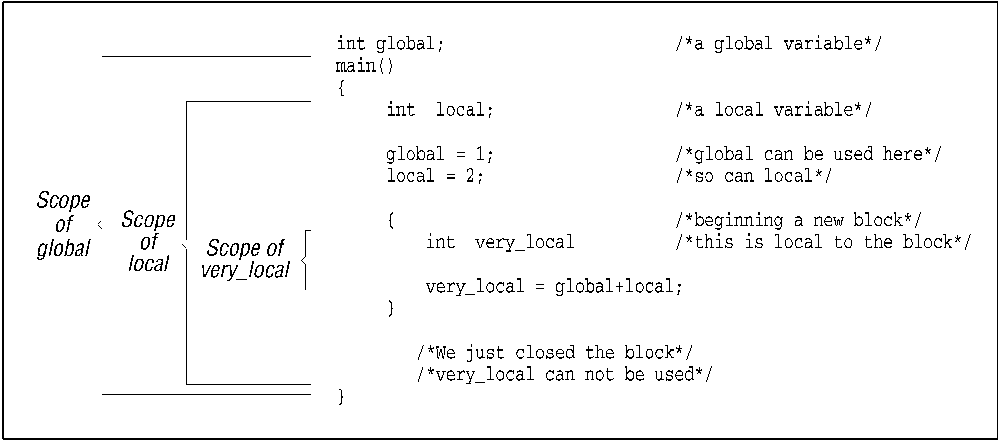Chapter 9. Variable Scope and Functions
But in the gross and scope of my opinion
This bodes some strange eruption to our state.
So far, we have been using only global variables. In this chapter, we will learn about other kinds of variables and how to use them. This chapter also tells you how to divide your code into functions.
Scope and Class
All variables have two attributes: scope and class. The scope of a variable is the area of the program in which the variable is valid. A global variable is valid everywhere (hence the name global), so its scope is the whole program. A local variable has a scope that is limited to the block in which it is declared and cannot be accessed outside that block. A block is a section of code enclosed in curly braces ({}). Figure 9-1 shows the difference between local and global variables.
 |
You can declare a local variable with the same name as a global
variable. Normally, the scope of the variable count (first declaration) would be the whole
program. The declaration of a second local count takes precedence over the global
declaration inside the small block in which the local count is declared. In this block, the global
count is
hidden. You can also nest local declarations and
hide local variables. Figure
9-2 illustrates a hidden variable.
The variable count ...
Get Practical C Programming, 3rd Edition now with the O’Reilly learning platform.
O’Reilly members experience books, live events, courses curated by job role, and more from O’Reilly and nearly 200 top publishers.

